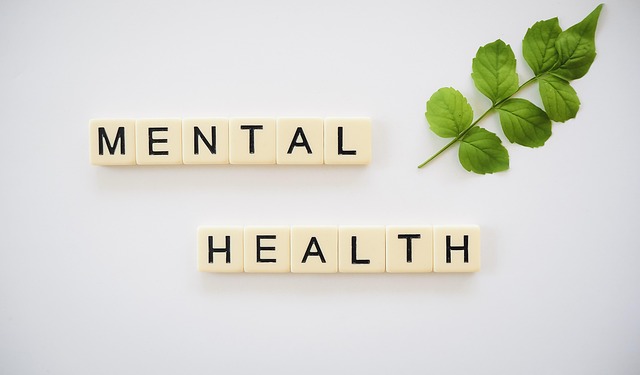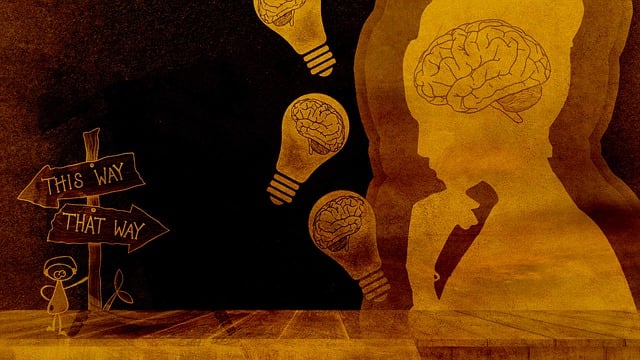Mental health crisis hotlines like Englewood Bipolar Disorder Therapy provide immediate support and guidance through phone-based interventions for acute emotional distress and mental health crises. With professional training in bipolar disorder management, these services ensure prompt care and navigate challenging interactions. Accessible 24/7, anonymous, and offering immediate relief, they are crucial components of comprehensive mental health education. Englewood Bipolar Disorder Therapy offers specialized support to manage severe mood swings, using evidence-based strategies and interactive sessions for emotional intelligence development and resilience building. Accessing these hotline services is a vital step towards recovery, offering personalized guidance and resources tailored to specific needs.
In today’s fast-paced world, mental health crisis hotline support services play a pivotal role in assisting individuals navigating turbulent times. This article delves into the significance of these lifelines, focusing on the unique contribution of Englewood Bipolar Disorder Therapy. We explore how such services, accessible 24/7, provide immediate relief and guidance during crises. Additionally, we discuss strategies for maximizing their benefits and building a comprehensive network of resources tailored for recovery, emphasizing the crucial role of Englewood Bipolar Disorder Therapy in fostering resilience.
- Understanding Mental Health Crisis Hotlines
- The Role of Englewood Bipolar Disorder Therapy
- Accessing and Utilizing These Support Services
- Building a Network of Resources for Recovery
Understanding Mental Health Crisis Hotlines

Mental health crisis hotlines are a vital resource for individuals experiencing acute emotional distress or mental health crises. They provide immediate support and guidance through phone-based interventions, offering a safe space to express fears, worries, or intense emotions. These hotlines cater to a wide range of issues, from depression and anxiety to more severe conditions like bipolar disorder in Englewood (a specific geographic area or community can be referenced for relevance).
Englewood Bipolar Disorder Therapy is one such service that leverages the power of crisis hotlines to enhance emotional healing processes. By training professionals to recognize and manage bipolar symptoms, these hotlines ensure individuals receive prompt care. Moreover, they often offer conflict resolution techniques tailored to mental health situations, helping users navigate challenging interactions with others during a crisis. The effectiveness of these services lies in their accessibility—24/7 availability, anonymity, and the immediate relief they provide, making them a crucial component of overall mental health education programs design.
The Role of Englewood Bipolar Disorder Therapy

Englewood Bipolar Disorder Therapy plays a pivotal role in addressing and managing mental health crises, specifically targeting individuals struggling with bipolar disorder. This specialized service offers a safe space for those experiencing extreme mood swings, providing immediate support and guidance. By focusing on emotional intelligence, therapists help clients identify and regulate their emotions, a crucial aspect of maintaining mental wellness.
The therapy series often includes evidence-based strategies tailored to enhance mental health awareness and overall emotional stability. Through interactive sessions, participants gain valuable insights into their condition, learn coping mechanisms, and develop resilience. Additionally, engaging in a Mental Wellness Podcast Series Production can further reinforce learning, offering diverse perspectives and real-life experiences shared by peers, all contributing to improved mental health outcomes.
Accessing and Utilizing These Support Services

Accessing support services for mental health crises is a vital step towards recovery and well-being. Hotline services are often the first point of contact, providing immediate assistance and guidance. Individuals can reach out to these hotlines confidentially, sharing their concerns with trained professionals who offer empathetic listening and valuable resources. Many hotlines have specifically tailored programs for common issues like Englewood Bipolar Disorder Therapy, ensuring personalized support.
Utilizing these services effectively involves being clear and honest about one’s situation. Description of symptoms, triggers, or any recent changes in behavior can help hotline counselors provide targeted assistance. Moreover, these platforms often offer not just short-term relief but also signposting to longer-term solutions, including referrals for specialized therapy, support groups, and mental health education programs designed to empower individuals with the tools for Depression Prevention and fostering Compassion Cultivation Practices.
Building a Network of Resources for Recovery

In addressing mental health crises, building a robust network of resources is paramount for effective recovery and support. This includes a diverse range of services tailored to different needs, such as crisis hotlines, counseling centers, and specialized therapy programs like Englewood Bipolar Disorder Therapy. By providing easy access to these resources, individuals facing emotional challenges can receive immediate assistance, ensuring they don’t navigate their struggles alone.
Public awareness campaigns play a crucial role in this network by educating the community on recognizing signs of mental distress and promoting positive thinking. These initiatives foster an environment where seeking help is normalized, reducing the stigma associated with mental health issues. Consequently, more individuals will be encouraged to access available support, whether through hotlines, therapy sessions, or other resources, ultimately contributing to improved emotional regulation and well-being.
Mental health crisis hotlines play a vital role in supporting individuals during their darkest moments. As demonstrated by Englewood Bipolar Disorder Therapy, these services provide immediate assistance and guidance, offering a safe space for those grappling with mental health crises. By accessing these resources, individuals can receive much-needed support, leading to improved recovery outcomes. Building a comprehensive network of such resources is essential for fostering resilient communities where everyone has access to care.











